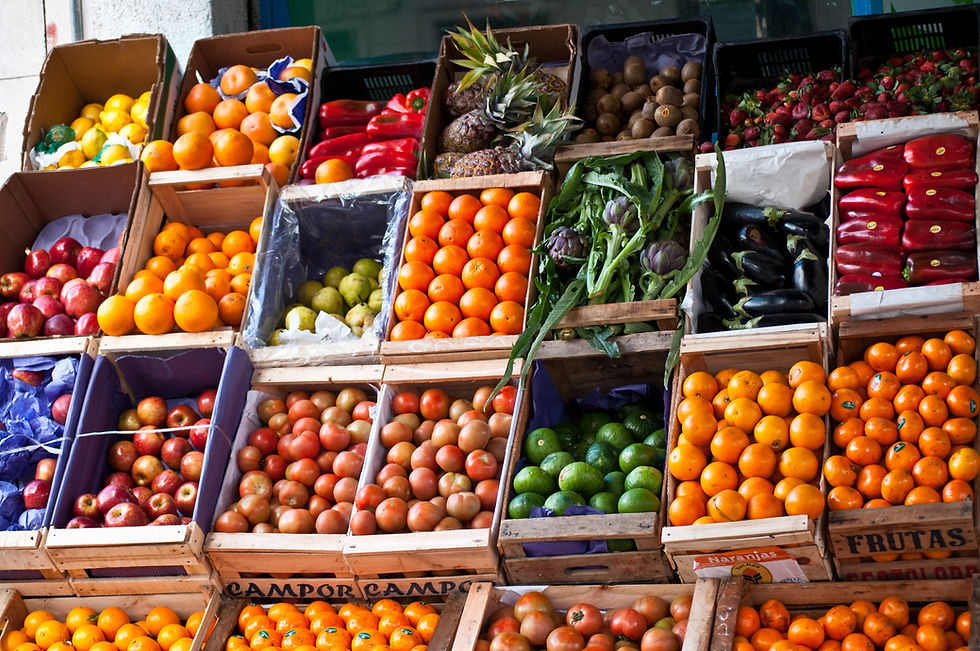Eating Sustainably
- Conscious Change

- Jan 29, 2022
- 2 min read
If you're reading this, you've probably thought about the sustainability and environmental impact about you're eating. From eating less meat to buying locally sourced food, there are lots of ways to lesser the impact your food choices are having on the earth.

Meat
Everyone's heard that eating less meat is beneficial for the environment, especially beef. Chicken is one of the meats with the lowest environmental impact. Eating one serving of chicken 3-5 times a week uses the same amount of energy to power the average UK house for 45 days.
A serving of tofu, however, at the same frequency only uses the energy required to power a home for five days. So effectively nine servings of tofu requires the same amount of energy as one serving of chicken. (Source: BBC )
One thing to remember when looking at these figures, however, is that they are global averages. The energy, water and land requirements for the production of meats like beef in Europe and Britain is one of the lowest rates in the world. Farmison UK reports that the British production of beef results in 50% lower emissions than the global average. (Source: policies for a net zero UK via @farmisonuk)
If you choose to eat meat, buying the British option will ensure that the production methods have fewer energy requirements, and they also travel fewer food miles. It's not always a question of what to eat, but where to eat from.
Vegetables
Another tip we're often told in reducing the environmental impact of our diets is to eat seasonally. Eating vegetables that are in season, particularly in season in Britain, means that less energy is used in producing them as they don't require energy-intensive methods like indoor or heated greenhouses. They will also travel fewer miles in their journey to your plate. It's not always about the miles though, BBC reports that tomatoes grown in the UK out of season actually have a higher carbon footprint than tomatoes grown out of the country that are flown or driven in. (Source: BBC) Vegetables can also sometimes be a case of choosing the right ones to eat. Production of avocados result in the highest greenhouse gases of any fruit or vegetables, and are often produced in Latin American countries so they will have travelled over 5000 miles to get to the UK. The increased demand in avocados has also drawn attention of cartels in South America, which drive wages down among the farmers and land workers, so by purchasing one you might unknowingly be giving your money to the cartels (Source: YouMatter).
Please note that this is not an article telling you what or how to eat, just some tips on how to reduce the environmental impact of what you're eating. Everyone has different social, cultural or financial reasons for eating the way they do, but if you're concerned and looking for those everyday changes, we hope this has helped you out somewhat! If you're interested in learning more about food miles check out the BBC carbon footprint calculator here





Comments